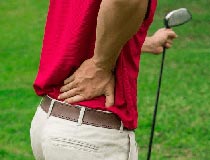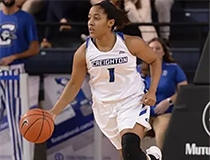Golf is a low-impact sport widely loved and enjoyed by many people since its inception. However, the repetitive motions in perfecting one's swing can lead to chronic injuries for professional and amateur players. These injuries can have a negative impact on a golfer's performance and overall enjoyment of the sport.
While some people may think that surgery is the only option for treating chronic golf injuries, it is essential to know that there are many non-surgical treatment options available. These alternatives can not only provide effective relief and recovery but may also prevent further damage, reduce recovery time and minimize the risks associated with surgery.
This blog aims to educate our readers on the different types of chronic golf injuries and provide a comprehensive guide to non-surgical treatment options. With expert advice, researched solutions, and up-to-date information, we aim to help you maintain your physical well-being and empower you to make informed decisions regarding your health and recovery journey.
Common Chronic Golf Injuries
Golf is a widely enjoyed sport that offers exercise and a chance to interact with the serene beauty of the outdoors. People of all ages and ability levels can partake in the game, but unfortunately, the repetitive nature of the sport can sometimes lead to chronic injuries. Here, we will discuss some of the most common chronic golf injuries and ways to prevent them.
Golfer's Elbow
Golfer's elbow, also known as medial epicondylitis, is a condition characterized by pain and inflammation on the inner side of the elbow. It is caused by excessive strain on the tendons that connect the forearm muscles to the elbow joint. The repeated motion of swinging a golf club can lead to this injury. Practicing proper swing techniques and regularly performing stretching and strengthening exercises keeps the forearm muscles strong and helps prevent this injury.
Injuries in Rotator Cuff
The rotator cuff is a group of tendons and muscles encompassing the shoulder joint, providing stability and facilitating arm movement. Golf players who repetitively swing and use forceful follow-throughs can put a significant amount of strain on the rotator cuff, which can lead to both sudden and long-term injuries. Following proper warm-up routines, practicing good swing form and strengthening the rotator cuff muscles prevent this injury.
Lower Back Pain
Lower back pain is a common problem among golfers due to the twisting and forward bending required during the swing. This can result in strains, sprains and even more severe issues such as herniated discs. To reduce the risk of lower back pain, it is essential to incorporate a proper warm-up routine, maintain good posture and strengthen the core muscles. If discomfort arises in the lower back, it is important to stop playing and avoid over-exerting the area immediately.
Wrist Injuries
Golfers frequently experience wrist injuries due to the abrupt impact on the wrist joints caused by the swing. This can result in tendonitis, inflammation of the joints and other persistent issues. It is essential to use the correct grip technique and perform strengthening exercises for the wrist and forearm muscles to avoid injuries.
Knee Pain
Playing golf involves a lot of walking, and the twisting motion involved in a golf swing can stress the knee joints, leading to chronic pain and discomfort. To decrease the likelihood of knee injuries, it is essential to maintain a healthy body weight, wear proper footwear and engage in regular stretching and strengthening exercises for your leg muscles.
Non-Surgical Treatment Options for Golf Injuries
Whether you're a seasoned golfer or a weekend warrior, suffering from golf injuries can be frustrating and disheartening. However, various non-surgical treatment options are available to help you get back into the swing of things.
Physical Therapy
Physical therapy is one of the primary treatments for a wide range of golf injuries. A licensed physical therapist can help diagnose your underlying health concern and develop a tailored, individualized treatment plan to address your needs. Physical therapy sessions may include stretching, strengthening, manual therapy techniques and education on injury prevention measures to reduce the risk of future injuries.
Chiropractic Care
The golf swing can cause spine-related injuries due to the rotational forces placed on the spine. For this reason, chiropractic care is a commonly used non-surgical treatment option for golf injuries. This involves adjustments and manipulations to help alleviate pain and restore proper spinal alignment. Regular chiropractic care can improve the range of motion, reduce pain and enhance overall performance on the golf course for many golfers.
Massage Therapy
Golf can cause significant stress and strain on muscles, and massage therapy is an excellent way to alleviate tension and increase blood flow to the affected areas. Massage can also help enhance flexibility, promote relaxation, and reduce inflammation, which can aid in the recovery process. There are various massage techniques that can be applied to meet the specific needs of each golfer.
Orthotic Inserts
Many golfers experience foot and ankle injuries due to the amount of walking and uneven terrain encountered on the golf course. Custom orthotic inserts can alleviate this pain and support the feet and ankles. These inserts are designed to fit into golf shoes and help correct biomechanical issues that could be causing pain and discomfort. By addressing these issues, golfers can improve their overall comfort and performance while reducing the risk of injury.
Medications and Topical Treatments
Over-the-counter medications like anti-inflammatories and pain relievers can help manage pain and inflammation caused by golf injuries. It is essential to use these medications in moderation and according to the recommendations of a healthcare professional. In addition, topical treatments such as creams, gels and patches can temporarily relieve pain and inflammation.
Regain Your Swing with Chicago Cell Therapy & Regenerative Medicine
Golf can be physically challenging and increase the risk of chronic injuries. However, this doesn't mean that you should stop playing the game. There are several non-surgical treatment options available that can help you recover.
At Chicago Cell Therapy & Regenerative Medicine, we are experts in restoring your body's natural healing abilities. Our team will work with you to create a customized treatment plan to get you back to the golf course in no time, performing at your best. There’s no reason to let chronic golf injuries discourage you from enjoying the game you love. Schedule a consultation today.


 Thanks a lot for getting my hip right. Looking forward to a full recovery and a great season. Thanks again for everything.
Thanks a lot for getting my hip right. Looking forward to a full recovery and a great season. Thanks again for everything.









